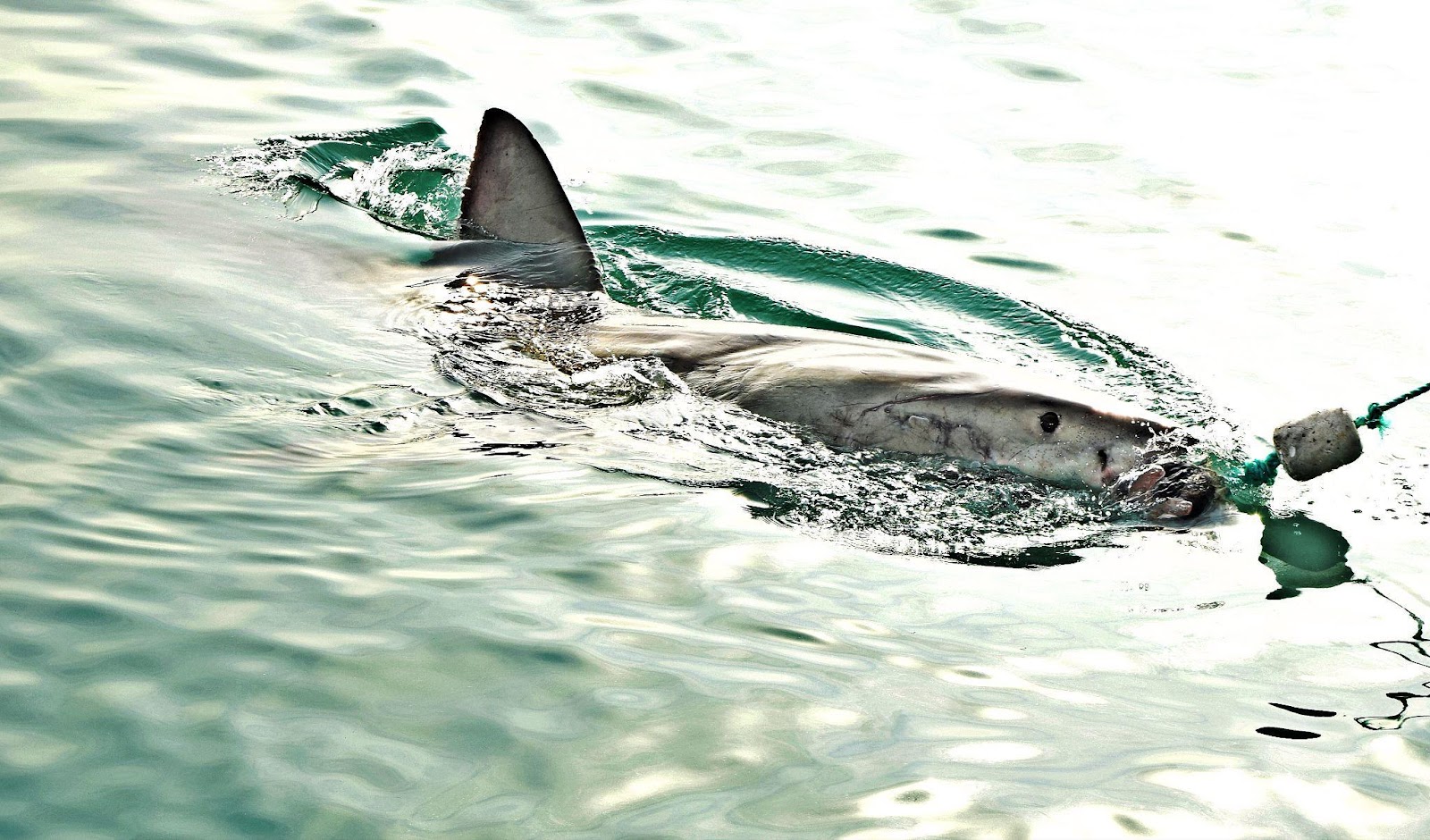
In a significant development for beachgoer safety along Alabama’s Gulf Coast, Governor Kay Ivey signed the Lulu Gribbin Shark Alert System Act into law on May 7, 2025.
The legislation establishes a notification system that will send alerts to cell phones when a shark attack occurs in coastal waters, providing critical real-time information to the public.
The law is named after Mountain Brook teenager Lulu Gribbin, now 16, who survived a devastating shark attack off the Florida Panhandle in 2024. Gribbin lost her left hand and a portion of her right leg in the incident, which was one of three attacks that occurred in quick succession in the same area.
“This bill will help prevent future attacks,” Gribbin stated while advocating for the legislation last month. “It’s like an Amber Alert when a child goes missing. It will send an alert when there has been a shark attack.”
How the Alert System Will Work
The newly established system will function similarly to other emergency notification systems, sending alerts to mobile devices when an attack has occurred in coastal waters. The Alabama Department of Conservation and Natural Resources will develop specific rules for implementing the system.
An earlier version of the bill would have allowed alerts for “imminent danger” when sharks were spotted near shorelines. However, since sharks are commonly found in Gulf waters, coastal communities expressed concern that such provisions would lead to excessive alerts, potentially causing unwarranted panic and negatively impacting tourism.
The finalized version focuses specifically on confirmed attacks, striking a balance between public safety and avoiding unnecessary alarm.
“Alabama is proud to have the safest and most beautiful beaches in the world,” Governor Ivey said in a statement. “The added tool of having a shark alert system will help officials in Baldwin and Mobile counties keep our beachgoers safe and enjoying the refreshing waters of our Gulf of America.”

Personal Injury Implications for Alabama Beachgoers
From a personal injury law perspective, this new alert system introduces interesting questions about liability and the duty of care owed to visitors at Alabama beaches.
The system potentially reshapes expectations around beach safety and the responsibilities of various stakeholders.
Potential Changes to Premises Liability
For property owners along Alabama’s coastline—including hotels, resorts, and public beaches—the implementation of this alert system may affect how courts view their duty to warn visitors about potential dangers.
The existence of an official alert system could raise the standard of care expected from commercial property owners who invite guests to use beach access points. Once an alert is issued, property owners may have an increased responsibility to communicate that information to guests and potentially restrict beach access until authorities deem it safe.
Contributory Negligence Considerations
Alabama follows contributory negligence rules, which historically have made it difficult for injury victims to recover damages if they were even partially at fault for their injuries.
The shark alert system could influence how courts assess a beachgoer’s level of awareness and responsibility.
If a visitor enters the water after receiving an alert about a recent attack in the vicinity, their decision might be viewed as assuming the risk or contributing to their own injury.
Conversely, if alerts aren’t properly disseminated to visitors by local businesses or officials, this could strengthen a victim’s case that they weren’t adequately warned of known dangers.

A Personal Story Driving Public Safety Policy
The passage of this legislation demonstrates how personal experience can drive meaningful policy change. Gribbin has become an advocate for beach safety after her traumatic experience, using her platform to help prevent similar incidents.
Gribbin was present at the private bill signing ceremony in the governor’s office, representing the culmination of her advocacy efforts.
Over 260,000 social media followers have tracked her recovery journey, including prosthetic fittings, physical therapy, and milestones such as attending her high school dance and returning to the beach for the first time after the attack.
During legislative hearings, Gribbin recounted the harrowing details of her attack. “My hand was bitten first. I remember just lifting it out of the water, and I was stunned because there was no hand there,” she recalled. “I couldn’t feel it because of all the shock I was in. Then the shark latched onto my leg.”
What makes her story particularly compelling from a public safety perspective is her assertion that she would never have been in the water had she known about a previous attack that had occurred just an hour earlier and a few miles away. This information gap is precisely what the new alert system aims to address.
Broader Impact on Gulf Coast Safety
While the alert system will initially only operate along Alabama’s coastline, supporters hope the concept will spread to neighboring states or even lead to federal legislation establishing a nationwide system for coastal waters.
Shark attacks remain statistically rare. According to the Florida Museum of Natural History’s shark research program, there were 47 unprovoked shark bites worldwide in 2024, including four fatalities.
However, the clustering of attacks in specific areas during short time periods—as occurred during the incident involving Gribbin—highlights the potential value of timely warning systems.
The legislation represents a targeted approach to enhancing public safety without causing undue alarm. By focusing specifically on actual bite incidents rather than shark sightings, the system aims to provide actionable information without unnecessarily disrupting coastal tourism.
Legal Considerations for Alabama Beachgoers
For Alabama residents and visitors planning beach vacations this summer, the new alert system offers an additional layer of protection. However, it also raises important legal considerations:
- Staying informed of alerts now becomes part of responsible beach safety;
- Following guidance from local authorities after an alert may impact liability in the event of an injury;
- Businesses operating beach activities should develop protocols for responding to alerts; and
- Parents should ensure children understand the alert system and appropriate responses.
For beachside property owners, reviewing insurance coverage in light of this new legislation may be prudent, as the standard of care expected from property owners could evolve as the alert system becomes established.
Get Expert Legal Guidance for Beach and Water Injuries in Alabama
If you or a loved one has experienced an injury at Alabama beaches or in coastal waters, the experienced personal injury attorneys at Baxley Maniscalco are here to help.
Our team understands the complex liability issues surrounding water-related accidents and can provide guidance tailored to your specific situation.
Contact our office today to schedule a consultation.
Can't find what you're looking for? Search our site below.










